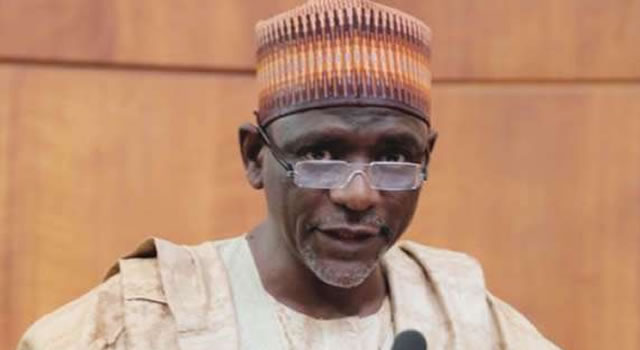Graffiti
Of ASUU strike and its damaging minuses

By John Chukwu…
After the National Executive Committee of the Academic Staff Union of Universities – ASUU – met on 4th November; at Federal University of Technology, Akure, Prof. Biodun Ogunyemi, ASUU’s National President, declared that the union is embarking on an indefinite strike due to federal government’s inability to fulfil the 2009 agreement and non-implementation of a 2017 Memorandum of Action – MOA – it had with them.
ASUU, for almost a decade, has always cited the failure of the federal government to honour their 2009 agreement – to improve facilities and enhance staff welfare at federal and state universities – as the chief reason for implementing a strike action – which has now taken the colouration of an annual ritual – as ASUU goes on strike almost every year. This time, the non-implementation of a 2017 MOA was included as one of the causative factors for the ongoing strike.
The underlying issues in the 2017 MOA include: funding for revitalization of universities, pension matters, earned academic allowances, salary shortfalls, staff schools, treasury single account exemption and state universities. These issues were on the front burner when Prof. Ogunyemi led ASUU to a meeting with the Minister of Education, Malam Adamu Adamu, in May and September.
Also, was the alleged plans of the federal government to increase tuition fees and re-introduce Education Bank – the Nigerian Education Bank, as it was known, was put in place between 1993 and 2001. The bank was a total failure because of diversion of funds, corruption and government’s inability to keep its responsibilities to the bank. However, due to the fact that the meeting did not yield any fruit, ASUU was spirited to go on strike – a strike action which saw the crippling of academic activities in both federal and state owned universities.
Poor funding of federal and state universities has always been the fulcrum of ASUU strikes. The United Nations Educational, Scientific and Cultural Organisation – UNESCO – recommended that a state should allocate 26% of its national budget to education. No Nigerian government – past and present – has been able to keep to this recommendation. In 2009, the education sector was allocated 7.25% of the national budget; in 2010, it was 4.83%; in 2011, 6.16% was allocated to the sector; in 2012, 8.20% was given; in 2013, it was 8.55%; in 2014, 9.94% was allocated; in 2015, 7.74% was allocated; in 2016, it was 6.10; in 2017, it was 7.38% while in 2018, 7.03% of the national budget was dished to the education sector. This shows that in a decade, the federal government has not been able to allocate, at least, 10% of the national budget to the education sector.
This is a bold statement to the financial neglect the education sector has been subjected to over the years. No sector of a nation can work effectively and efficiently without adequate funding. Funds are needed to address the infrastructural decay in universities across the country. Students face the challenges of inadequate classrooms, paucity of teaching aids: projectors, laboratory equipment, computers etc. They are confronted with issues of ill-equipped libraries, epileptic power supply, dilapidated hostels and polluted learning environment. Most of the roads in the universities are in comatose and calling for immediate repairs.
Most of the lecturers are dissatisfied with the work they are doing. Stories of non-payment of salaries rent the air especially in state universities. The lecturers lack motivation to give in their best. This directly affects the students as they are not well tutored and challenged for academic exploits. Thus, the yearly graduation of half-baked if not unbaked graduates.
These make for the reasons why most political office holders and wealthy parents send their children abroad to study while some send theirs to good private universities. Thus, leaving government universities to rot away. This style will never help Nigeria in its quest of being a developed nation. It will always fuel the energy to set us back. Decades back, foreign students littered our universities but all that has changed. No foreigner wants to study in Nigeria.
Education is the bedrock of national development and the development of a state could be traced to the level of education in that state. Nigeria has gone past the age of having a weak education system. We are beneath strikes. That our universities are closed down is a shameful and disgraceful story that should not be heard of. The federal government needs to look at the demands of ASUU and see how the strike could be called off.
When students stay at home doing nothing, there is a high propensity for them to be vulnerable to all manner of social vices such as armed robbery, prostitution, drug abuse and the like. Some of them are also prone to some misfortune. For instance, on 20th November, it was reported that seven students of University of Maiduguri lost their lives in a fatal motor accident along Damaturu road while going back to their homes because of the strike. These are students who would have been alive and busy with their studies, if there was not a strike action.
No nation moves forward without a good and functional education system. Therefore, the time is ripe for ASUU and the federal government to resolve their differences. This is most urgent. Now.
Join the conversation
Support Ripples Nigeria, hold up solutions journalism
Balanced, fearless journalism driven by data comes at huge financial costs.
As a media platform, we hold leadership accountable and will not trade the right to press freedom and free speech for a piece of cake.
If you like what we do, and are ready to uphold solutions journalism, kindly donate to the Ripples Nigeria cause.
Your support would help to ensure that citizens and institutions continue to have free access to credible and reliable information for societal development.
























